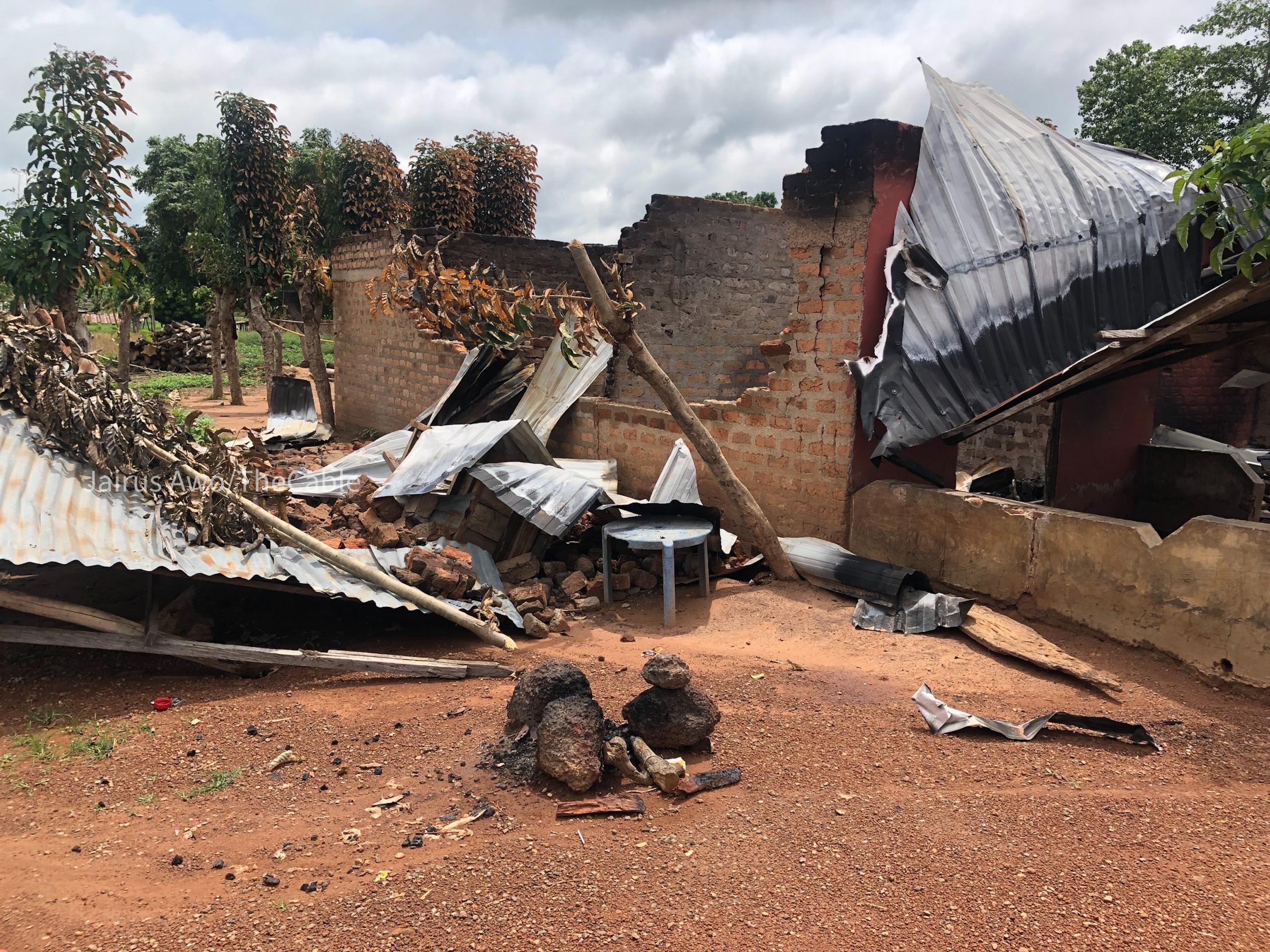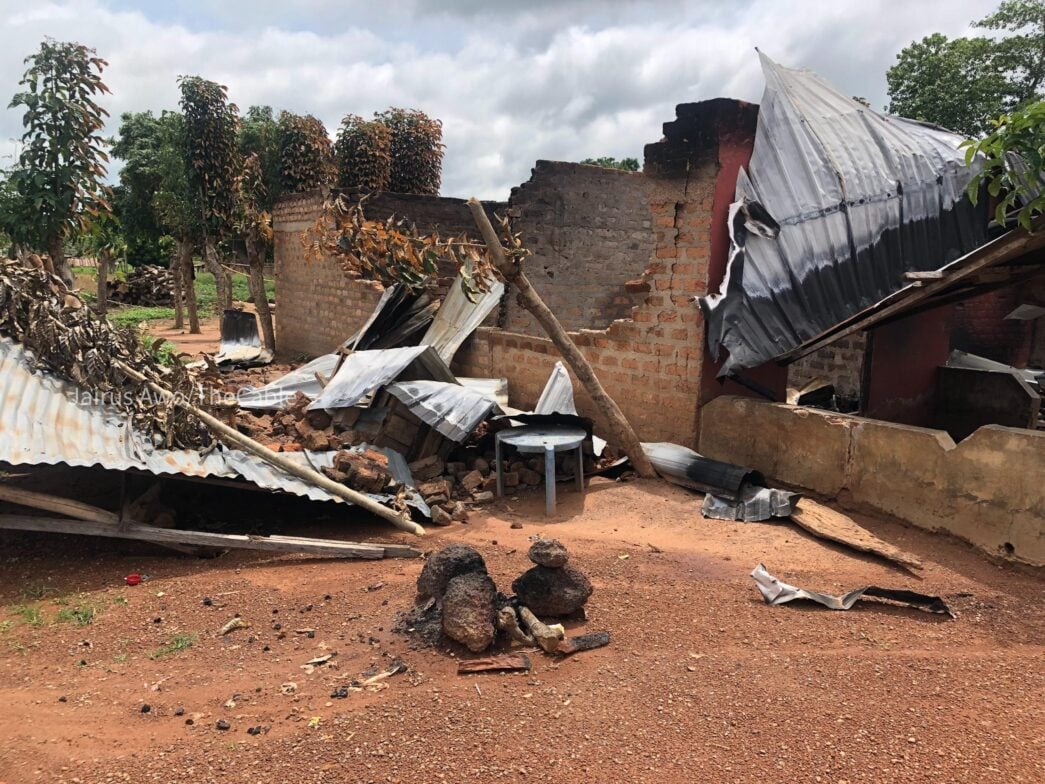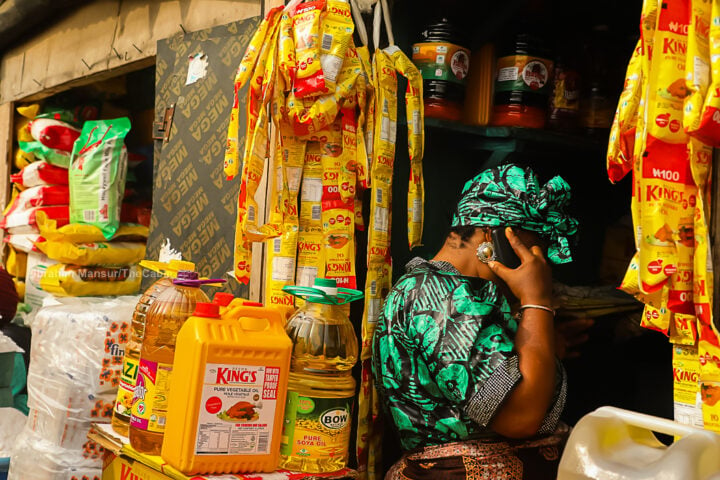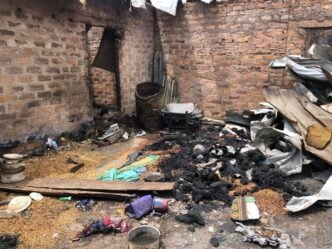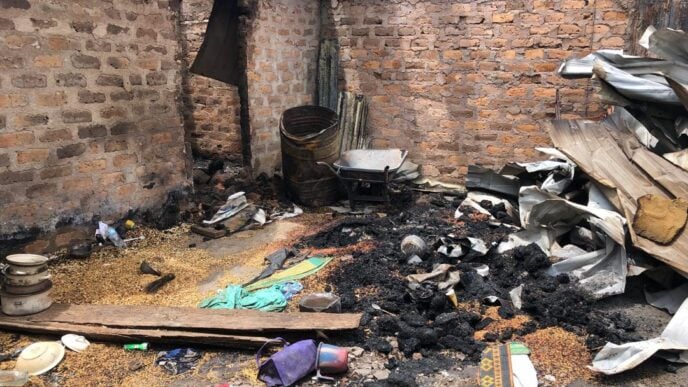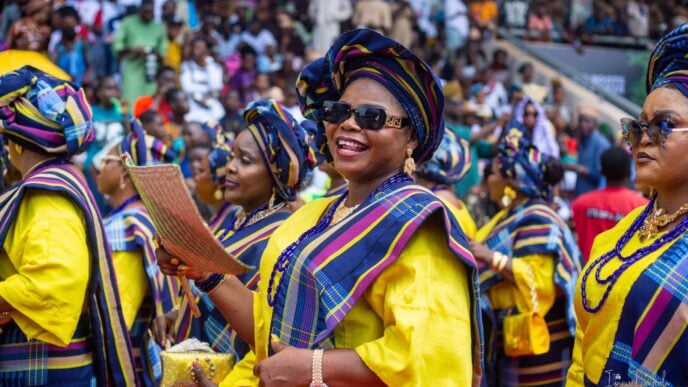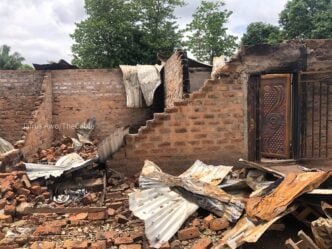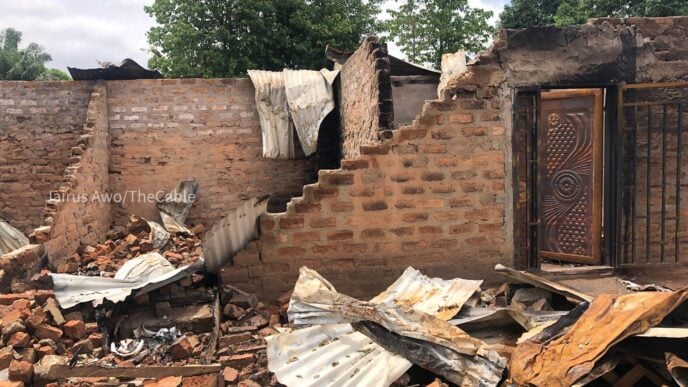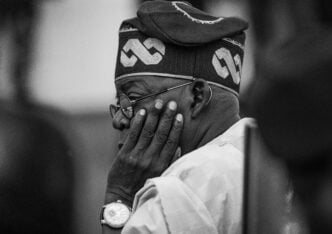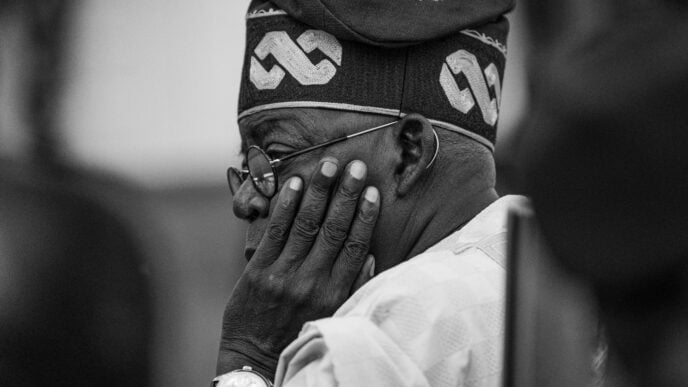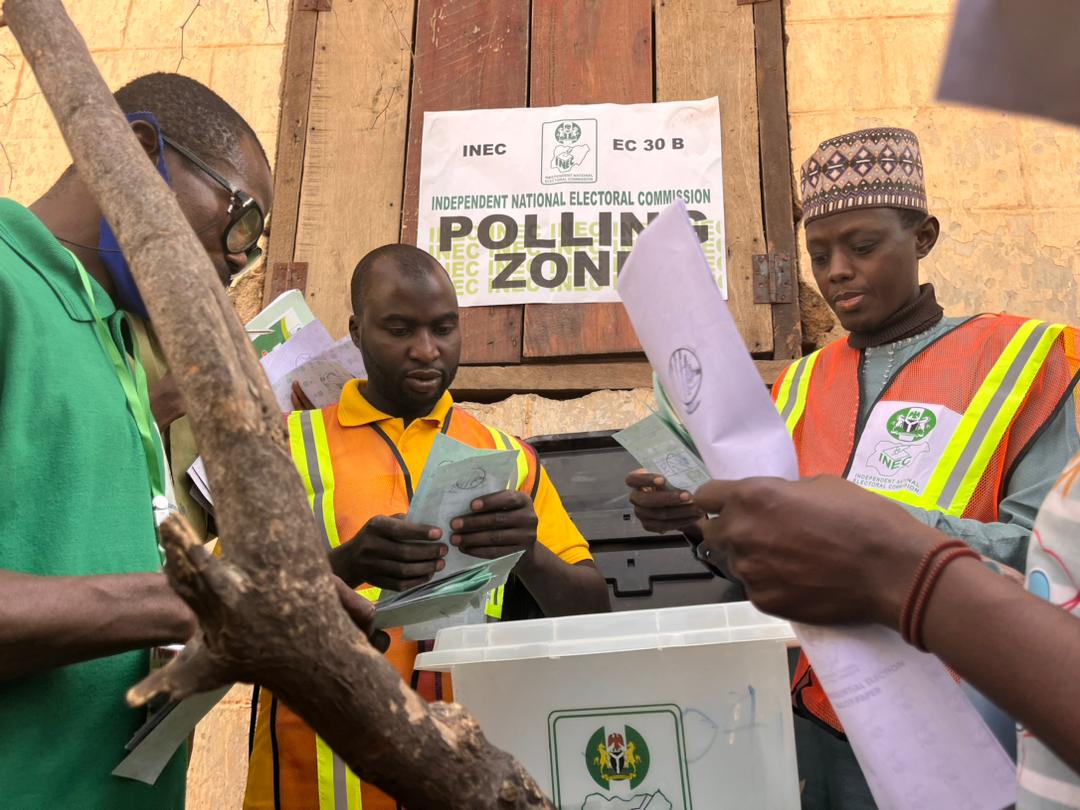BY AKINTUNDE BABATUNDE
Another mass grave. Another set of families shattered. Another village burned to ashes. The recent massacre in Yelwata, Guma Local Government Area of Benue State, is not just another tragedy in Nigeria’s long history of bloodshed, It is a damning indictment of a state that has normalized mass killing as part of its political and social landscape.
More than 100 people, most of them internally displaced persons who had fled earlier attacks, were slaughtered in Yelwata. Many were burned alive in makeshift shelters. Children. Women. Elders. Entire families wiped out. And yet, as is now routine, Nigeria barely paused to mourn.
There were no days of national reflection, moments of silence, or televised addresses centered on the victims. Instead, the Benue State Government quickly declared a public holiday, not to honor the dead but to organize a colorful political procession to welcome the President’s visit. While graves are still being dug, political leaders are choreographing parades. This is nothing but a a state-sponsored moral collapse.
Pattern of Violence
What happened in Yelwata is not an isolated tragedy as Benue State has suffered a long string of brutal mass killings over the past decade, each following the same deadly script. In 2016, over 300 people were massacred in Agatu. In 2018, dozens were killed in coordinated New Year’s attacks across Guma and Logo. In 2021, more than 40 died in Odugbeho, Agatu. In 2022, multiple waves of violence struck Gbeji, Ukum, and Logo, leaving over 200 dead. In 2023, 136 people were murdered during the Good Friday killings in Umogidi, Apa LGA. And now, in 2025, Yelwata mourns over 100 more, many of them burned alive while seeking refuge.
Advertisement
Each time, the pattern repeats: mass killings, promises of investigation, political silence, and no accountability. The perpetrators remain unnamed, justice remains absent and the ground is quietly prepared for the next massacre.
A Familiar Script of Silence
The pattern of our nation response is depressingly familiar. As mass killings erupt, authorities promise action. Days pass. Names of perpetrators remain unspoken. Arrests rarely occur. Prosecutions are almost nonexistent. Before the blood even dries, the national conversation moves on. This has happened in Agatu. In Logo. In Barkin Ladi. In Southern Kaduna. Now again in Yelwata.
Nigeria has perfected a political ritual of evasion: grief is managed, not confronted. Pain is neutralized through silence, victims are erased by forgetting and perpetrators thrive in the darkness of official anonymity.
Advertisement
Accountability begins with truth, yet Nigerian authorities routinely refuse to even name suspects, let alone prosecute them. The state’s security and intelligence systems often know who these killers are, community members sometimes know but for years, successive governments have treated public identification of mass murderers as too politically sensitive, too destabilizing, too inconvenient.
What lies beneath this pattern is a grim political reality: for many in Nigeria’s ruling class, maintaining power is the ultimate priority. Human lives, especially the rural poor, are expendable collateral. Public outrage is managed through staged appearances, not through substantive justice. A president’s visit becomes a photo opportunity, not a platform for reckoning where Governors declare holidays for political mobilization, not for collective mourning. The state is present when it needs to extract loyalty but bbsent when its people need protection. They are only responsive when elites are threatened but indifferent when citizens are slaughtered.
Benue as a Mirror
Benue State offers a tragic mirror into the deeper fractures of Nigeria. It is a region long caught between competing claims over land, herder-farmer conflicts, climate stress, poverty, weak governance, and a political elite more invested in power calculus than people’s safety. These structural conflicts have now metastasized into normalized mass atrocities where entire communities are periodically erased, and the state responds with little more than recycled statements of “deep concern.”
Yet, these killings are not inevitable. They persist because impunity persists. Because victims have been made invisible. Because the international community often accepts Nigeria’s excuses for its dysfunction as “complex context.” Because civil society has often operated in fragmented silos, reacting episodically rather than organizing consistently.
Advertisement
The Media Cannot Be Passive Observers
The state may be failing, but the media must not mirror that failure. We cannot afford journalism that simply reacts after bodies have fallen. We need investigative journalism that functions as an early warning system, constantly uncovering risks, exposing enablers, mapping conflict patterns, and naming failures before they harden into mass graves.
Journalists must not wait for official briefings to dictate the news cycle. In a country where power protects itself, investigative reporters are often the only remaining line of defense between vulnerable citizens and complete erasure.
Where the state refuses to name perpetrators, journalism must step up. Where official data is missing, civic media must build its own evidence. Where victims are silenced, reporters must center their voices.
Benue does not just need our sympathy. It needs an aggressive, coordinated, unrelenting investigative response that pierces through the fog of silence and forces accountability onto the national agenda.
Advertisement
What Must Be Done
At this point, we do not need more condolences, we need structural action:
-
Naming the perpetrators because no serious accountability can begin without publicly identifying those responsible. Security agencies know more than they admit. Silence is complicity.
-
Building a public atrocity tracker: Every mass killing must be documented, mapped, and made publicly accessible, creating a permanent memory of state failure and survivor dignity.
Advertisement -
Strategic legal action: Survivors deserve representation in national and international courts. The failure of protection is not merely tragic, it may rise to the level of criminal state negligence.
-
Internationalizing the crisis. The African Union, ECOWAS, and Nigeria’s bilateral partners must stop accepting Nigeria’s repeated failure to protect its citizens as “internal matters.”
Advertisement -
Empowering youth as peace agents. In the absence of credible state protection, we must invest in youth-led early warning systems, community observers, and local mediators to prevent future atrocities.
-
Centering survivors. The dead cannot speak, but survivors can. They must be given platforms, not just for sympathy, but for truth-telling, justice, and participation in designing real solutions.
Advertisement
History Is Watching
Every grave in Benue stands as silent evidence of a state that has failed its most basic duty to protect life. But those graves also stand as a warning. What we allow to fester in Benue will one day haunt the entire Nigerian project. If we cannot name mass murderers, prosecute them, and protect our most vulnerable, we are not a nation. We are simply a collection of wounded people, governed by performance and sustained by silence.
Benue is bleeding. The world must no longer look away. And neither should we.
Akintunde Babatunde is a media innovation leader and the executive director of the Centre for Journalism Innovation and Development (CJID). He works at the intersection of journalism, civic accountability, and digital governance across Africa.
Views expressed by contributors are strictly personal and not of TheCable.
